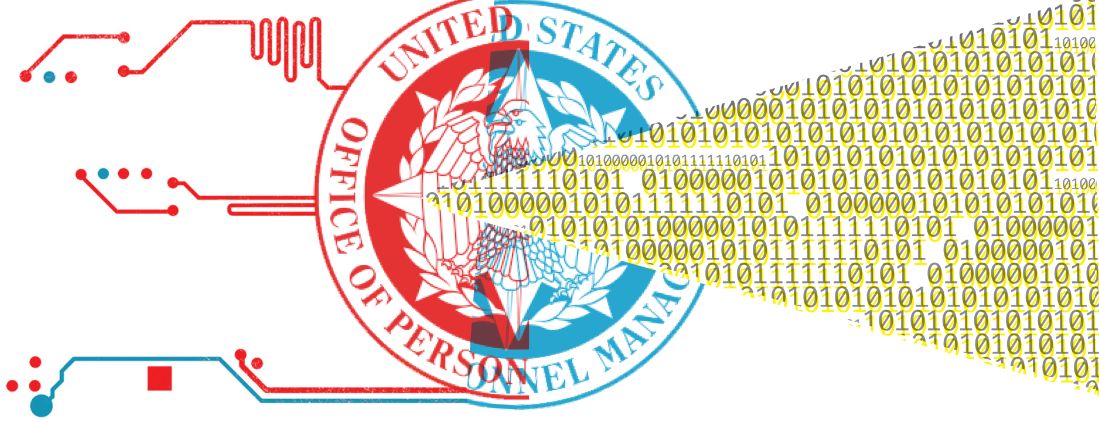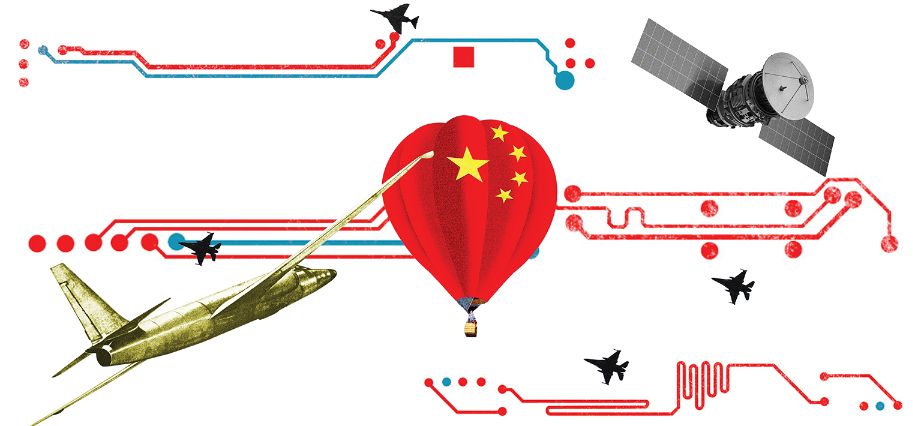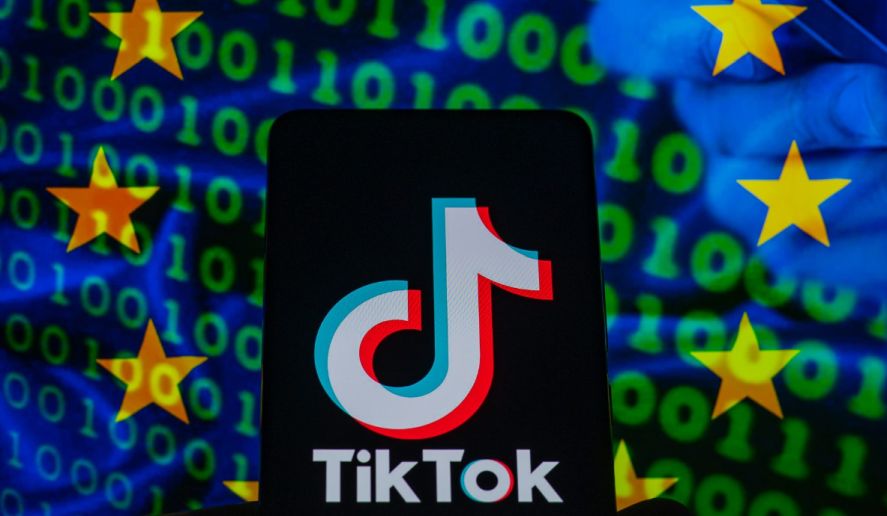By Eric Vandenbroeck and co-workers
Chinese Intelligence
Today we are
witnessing some of the effects of a decision made years ago by China to use every means and medium of
intelligence-gathering at its disposal against the West. Its strategy can
be summarized in three words: collect, collect, collect. Most Westerners do not
yet appreciate just how sweeping China’s intelligence onslaught directed at
their countries is; for decades, their governments likewise didn’t understand
because their attention was largely directed elsewhere.
After 9/11, the U.S.
intelligence community was overwhelmingly geared toward counterterrorism. U.S.
spy chiefs followed priorities for this agenda set by decision-makers in
Washington. The U.S. government’s strategic focus on combating terrorism took
place at the expense of focusing on resurgent states such as China and
Russia.
The strategy that
China’s Ministry of State Security (MSS), its principal civilian intelligence
service, took toward the United States after 9/11 followed a Chinese
saying, ge an guan huo,
which roughly translates as “watch the fires burn from the safety of the
opposite river bank, which allows you to avoid entering the battle until your
enemy is exhausted.” The MSS followed this saying to a T. Its long-term aim was
to contain the United States and then supplant it in Southeast Asia. As the
United States was mired in the Middle East, the gains made by the MSS went
largely undetected or appreciated by U.S. intelligence.
The strategy that China’s Ministry of State Security (MSS), its
principal civilian intelligence service, took toward the United States after
9/11 followed a Chinese saying, ge an guan huo, which roughly translates as “watch the fires burn from
the safety of the opposite river bank, which allows you to avoid entering the
battle until your enemy is exhausted.” The MSS followed this saying to a T. Its
long-term aim was to contain the United States and then supplant it in
Southeast Asia. As the United States was mired in the Middle East, the gains
made by the MSS went largely undetected or appreciated by U.S. intelligence.

Beginning in 2005, the MSS declared war on the
U.S. intelligence community. From that point on, all of the service’s best
resources and personnel were marshaled against U.S. intelligence—while the
United States was pivoting to the global war on terrorism. According to one CIA
official with deep expertise on China, with whom I had an exclusive interview
on condition of anonymity, internal MSS deliberations from that time were
marked with glee as the U.S. government was consumed, if not distracted, by the
global war on terrorism.
Chinese intelligence
was soon winning its war on U.S. spies. In 2010 the MSS dismantled a major CIA
network being run from its station in Beijing. This led to China’s recruitment
of former CIA officer Jerry Chun Shing Lee. The justice department says Lee was
contacted by Chinese intelligence agents in 2010. They offered him money,
promising to take care of him "for life" in exchange for the required
secret information. Hundreds of thousands of dollars were deposited in his Hong
Kong bank account between May 2010 and December 2013. Lee created a document
containing information about CIA activities, including locations to which US
agents would be assigned.
Hong Kong media identified the man in the blue tie as
Lee.

The justice
department said that Lee was interviewed by CIA officers in 2012, during which
he said he had met Chinese intelligence officers but concealed that they had
set him tasks. In 2013 he first denied knowing about the document on his USB
drive and then admitted he had created it but said he had never handed it on to
Chinese agents. He was arrested at New York's JFK airport in January 2018.
The information
provided by Lee is said to have helped China to bring down a network of
informants between 2010 and 2012. About 20 informants were killed or
jailed during that period - one of the most disastrous failures of US
intelligence in recent years.
Lee is not the only
former CIA officer convicted of working with China. A former CIA spy Kevin
Mallory was sentenced to 20 years in prison after being convicted of
conspiring to transmit US defense secrets to China.
At this point, you
might say, fair enough, spies spy, just as robbers rob. Perhaps China has been
doing what all states do, only better. This might be called the realist school
of espionage in international affairs. Such a line of thought about China usually
said with a shrug, is misleading. China’s intelligence services operate
fundamentally different from the West in nature, scope, and scale.
Unlike those in
Western democracies, China’s intelligence services are not held to account by
independent political bodies or the public, nor are they subject to the rule of
law. Instead, the Chinese government fuses a “whole of society” approach to
collecting intelligence. This sets it apart from anything undertaken by Western
governments. Chinese intelligence and commerce are integrated into ways without
comparison in the West. Contrary to what may be thought, the U.S. government
does not conduct industrial espionage to advantage U.S. businesses. In China,
by contrast, thanks to successive national security legislation passed
under President Xi Jinping, Chinese businesses must work with its intelligence services whenever
requested. They are effectively silent partners in Chinese commerce with the
outside world. Another difference between Chinese intelligence and Western
powers concerns what those in the spy world call ubiquitous technical
surveillance. Facial recognition, phone apps, and CCTV all make China an
infinitely harder target for Western agencies to collect intelligence than
Chinese services’ targets in open Western democracies. A fundamental asymmetry
thus exists in the shadowy intelligence battles between China and the West.

China’s foreign
intelligence offensive has reached new levels since Xi took power in 2012. Its
purpose involves what all intelligence agencies do: to understand the
intentions and capabilities of foreign adversaries. But China’s offensive goes
much further: to steal as many scientific and technical secrets from Western
powers, principally the United States, as possible to advance China’s position
as a superpower, challenging and overtaking the United States on the world
stage.
This century, China’s
unprecedented economic boom has been fueled by an equally unprecedented theft
of Western science and technology. In 2012, the U.S. National Security Agency
director warned that cyber espionage constituted the greatest transfer of
wealth in history. China was, and remains, the greatest perpetrator. Beginning
around 2013 or 2014, Chinese operatives carried out a massive hack of the U.S.
Office of Personnel Management (OPM), which holds some of the most sensitive
information in the U.S.
China’s spy balloon this year was equipped with state-of-the-art
sensors capable of eavesdropping on electronic signals from near space that
satellites could not.
You can’t blame a
wolf for going after chickens in a coop, especially if the door is open.
A recent report by Strider Technologies, an open-source
strategic intelligence start-up, has revealed how Chinese scientists obtained
valuable research and development (R&D) from Los Alamos, home to the U.S.
government’s cutting-edge laboratories. The report—which also demonstrates the
power of open-source intelligence in today’s digital world, reveals that
Chinese scientists at Los Alamos brought R&D from there back to China,
which the Chinese government then used in defense technologies such as hypersonics. In some instances, the Chinese scientists at
Los Alamos had been funded by U.S. research grants. The United States was thus
effectively funding its competitive disadvantage with China in these sectors.
Cold wars tend to start before Western countries are prepared.
Intelligence records reveal that in 1945 the Soviet government was
effectively already engaged in a cold war with its Western counterparts. This
was based on its long-term ideological opposition to capitalist powers and
Soviet leader Joseph Stalin’s belief that he had to contain them. Before and
during World War II, Soviet intelligence undertook an unprecedented espionage
offensive against Western powers—including the Soviet Union’s wartime allies
Britain and the United States—to collect political intelligence and steal as many
scientific and technical secrets as possible. Soviet spy chiefs were pushing at
an open door as their Western allies were distracted, if not consumed, by
fighting the Axis powers. By the end of World War II, Soviet
spies had acquired secrets of the nuclear bomb, whose later development
would shape postwar international security. Soviet agents had also penetrated
the most sensitive parts of Western governments. This allowed Stalin to
calibrate his strategies toward his former wartime Western allies—who were
never his allies in the sense they thought, based on secrets from the inside.
Western powers were ill-equipped for a struggle they were already in by 1945.

History may not repeat
itself, but it does rhyme. There are rhymes with the Cold War and U.S.-China
relations today. As in the Cold War, from the view of intelligence and national
security, the United States is already in a cold war with China. Like the last
century’s superpower conflict, Western intelligence agencies are again racing
to recalibrate and catch up.
The Cold War offers
two warnings. First, Chinese spies are real in the same way. Soviet agents were
real. An uncomfortable public policy conversation is urgently needed about the
nature of Chinese students, academics, and businesspeople, some of whom may
have malign intentions, as well as talent programs and cultural outreach
programs in the United States. But that does not mean that Americans who happen
to be of Chinese heritage are spies, any more so than left-leaning Americans
were Soviet agents.
Second, sunlight is
the best disinfectant. The U.S. government must be transparent about its
knowledge of Chinese intelligence. If such information is not forthcoming and
scrutinized, debated, and challenged, there is a real prospect of another
McCarthyite witch hunt. Today, Chinese Americans are often the victims of the Chinese government and its intelligence services.
Finding the balance between security and civil liberties is our challenge
ahead. China will continue to spy, using all means available, balloons,
businesses, and bytes. We need to determine what trade-offs we will put up with
between security and civil liberties.
As for the
recent TikTok hearing, TikTok provides the Chinese government a potential platform
to collect intelligence behind the endless videos posted. It also offers the
Chinese government the opportunity to shape public opinion. So
far, however, it has not been demonstrated in Congress that TikTok actually
does either. TikTok should certainly be banned from phones carrying Western
state secrets because of the potential for Chinese espionage, but its wholesale
ban in the United States is so far not justified on national security grounds.
Unless or until evidence emerges that TikTok constitutes more than a potential
security threat at large, it is surely the right of Americans to post as many
videos as they want online and potentially have their data mined in China if
they wish.
For updates click hompage here